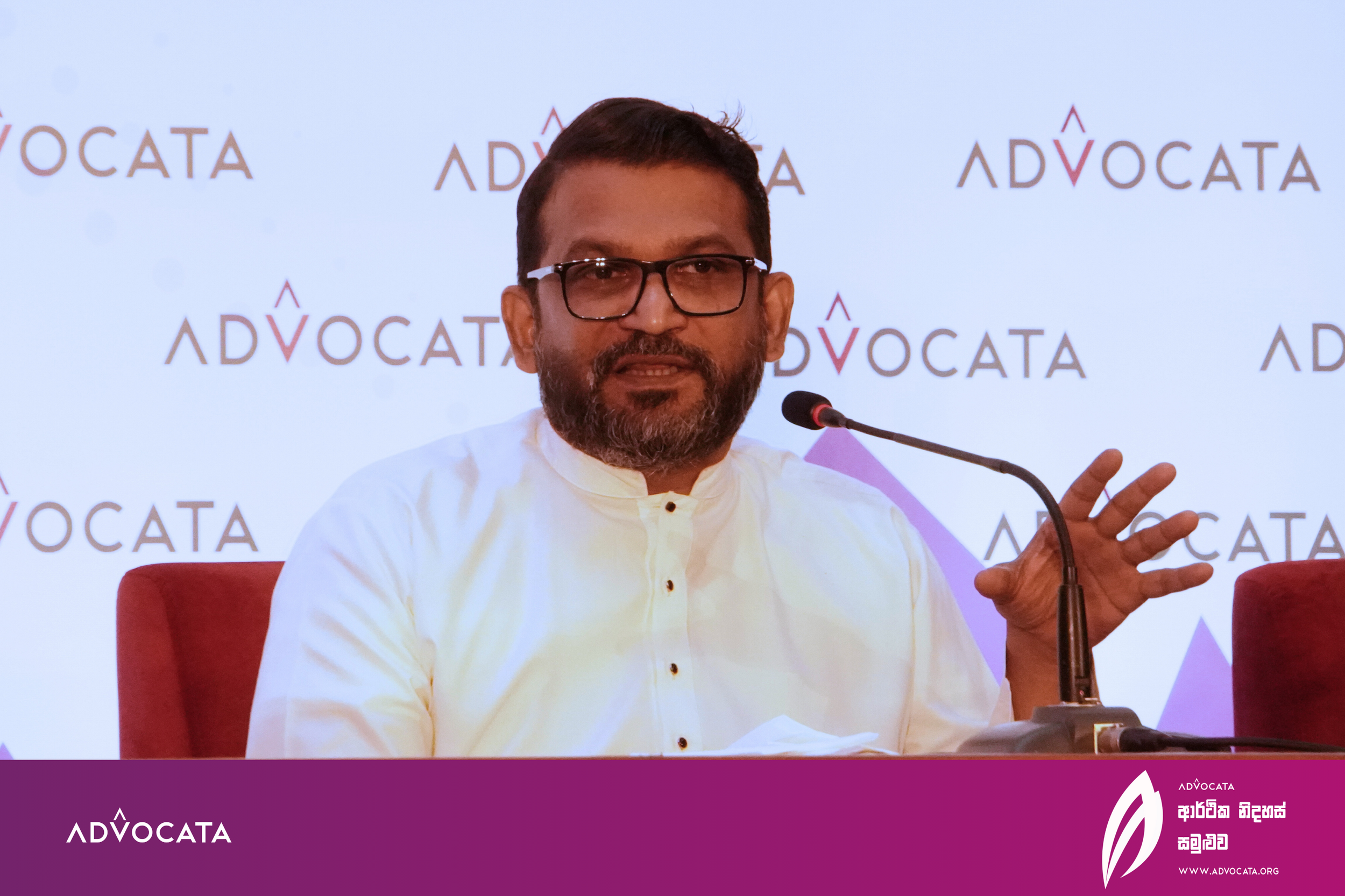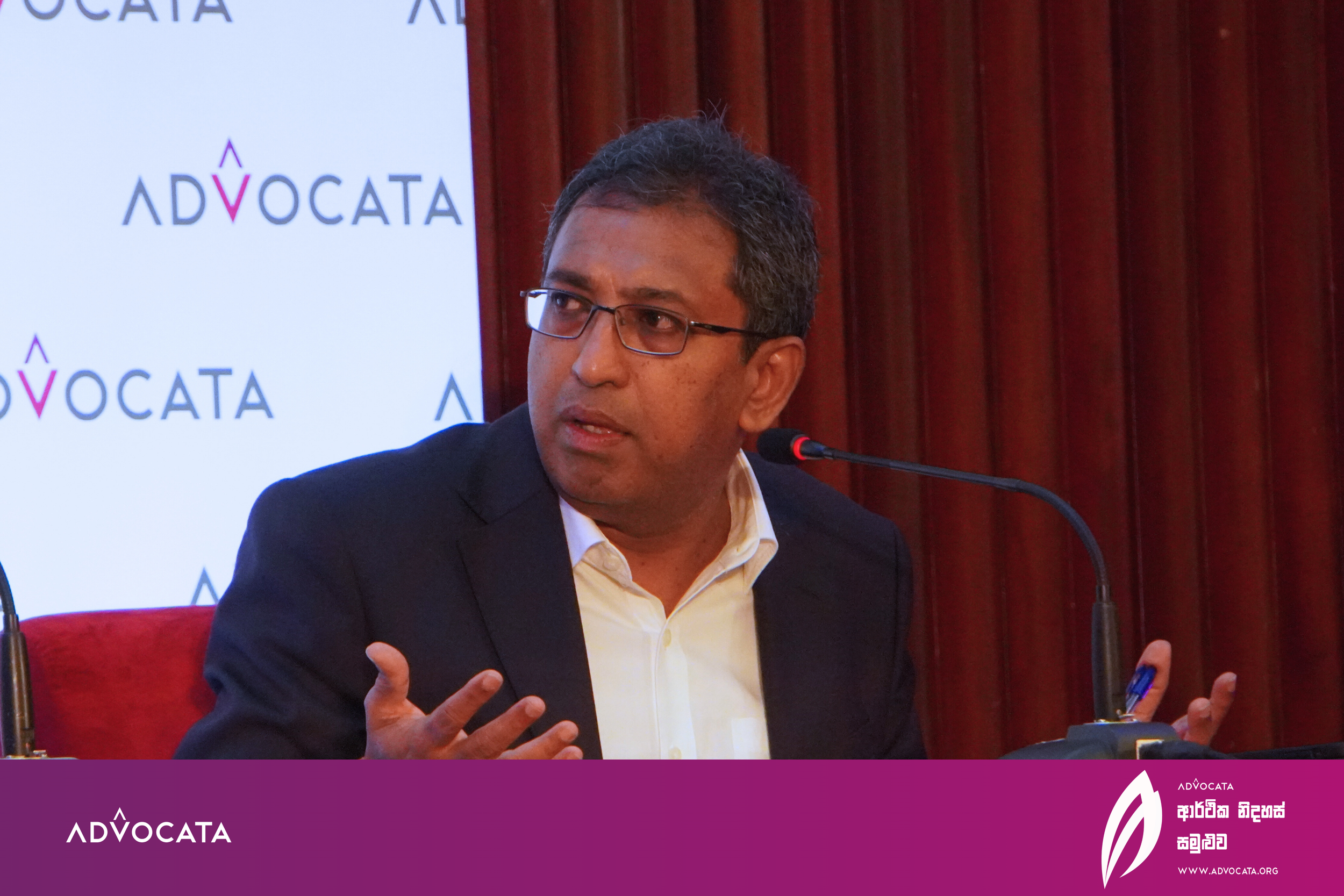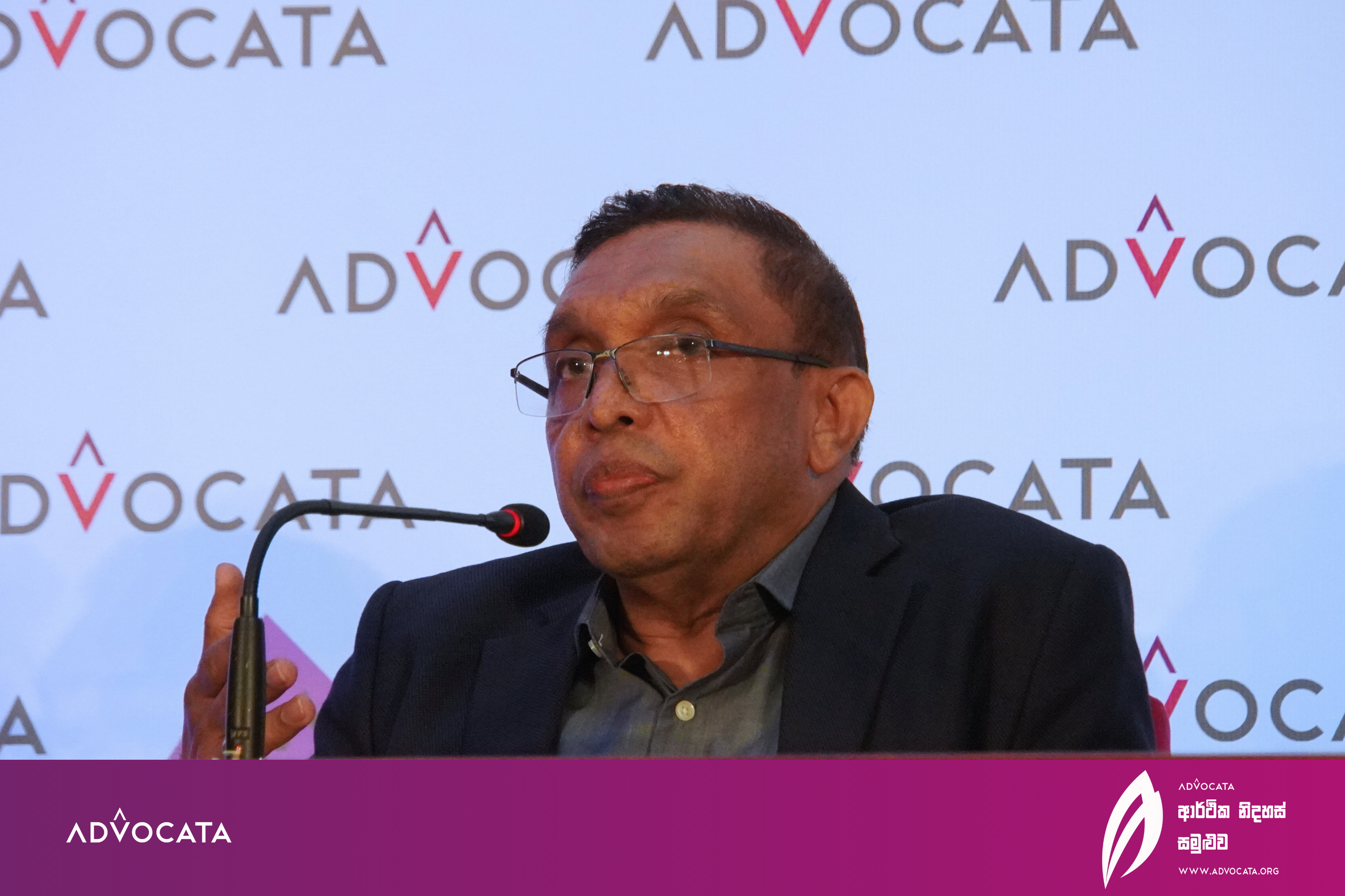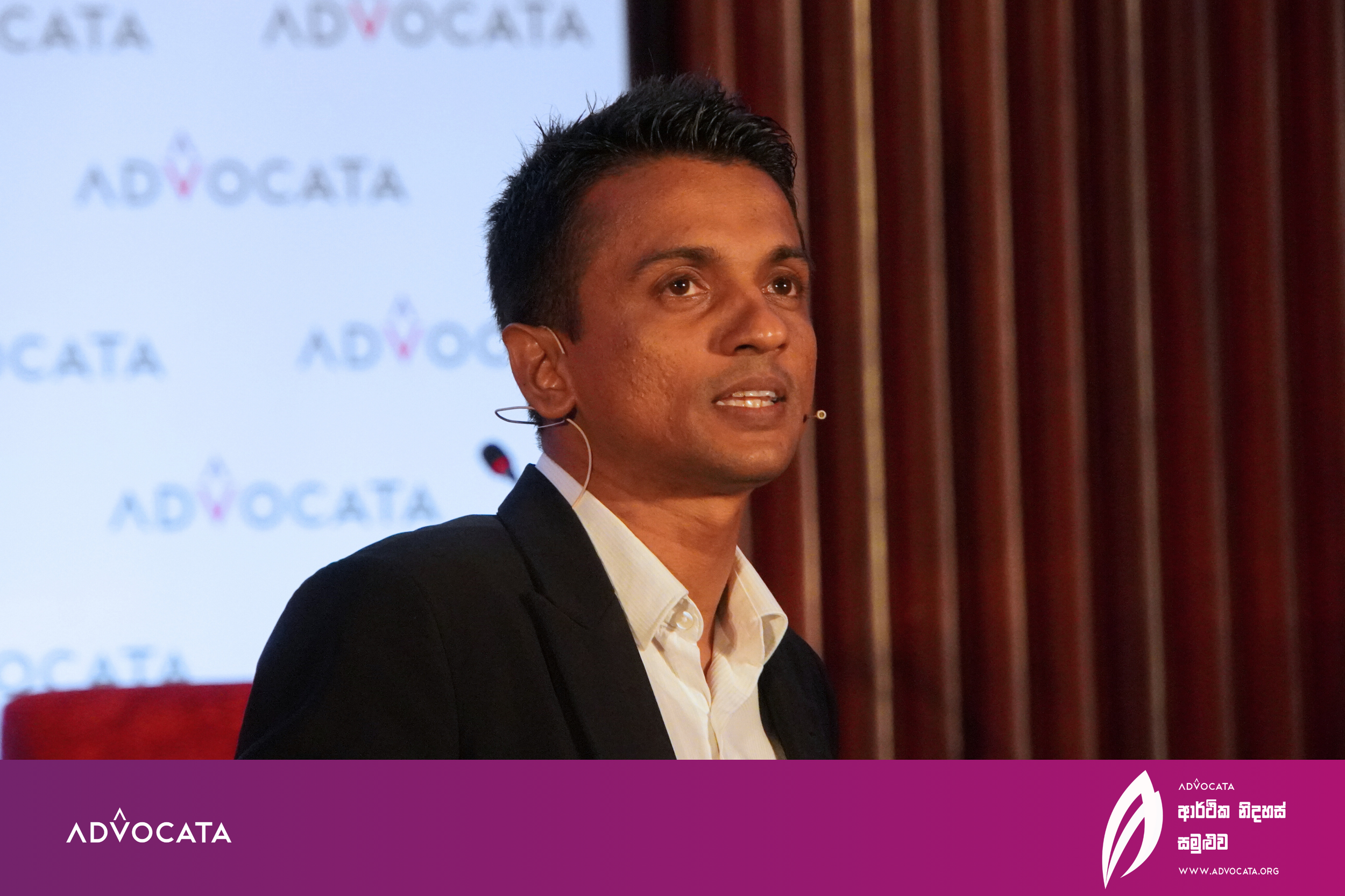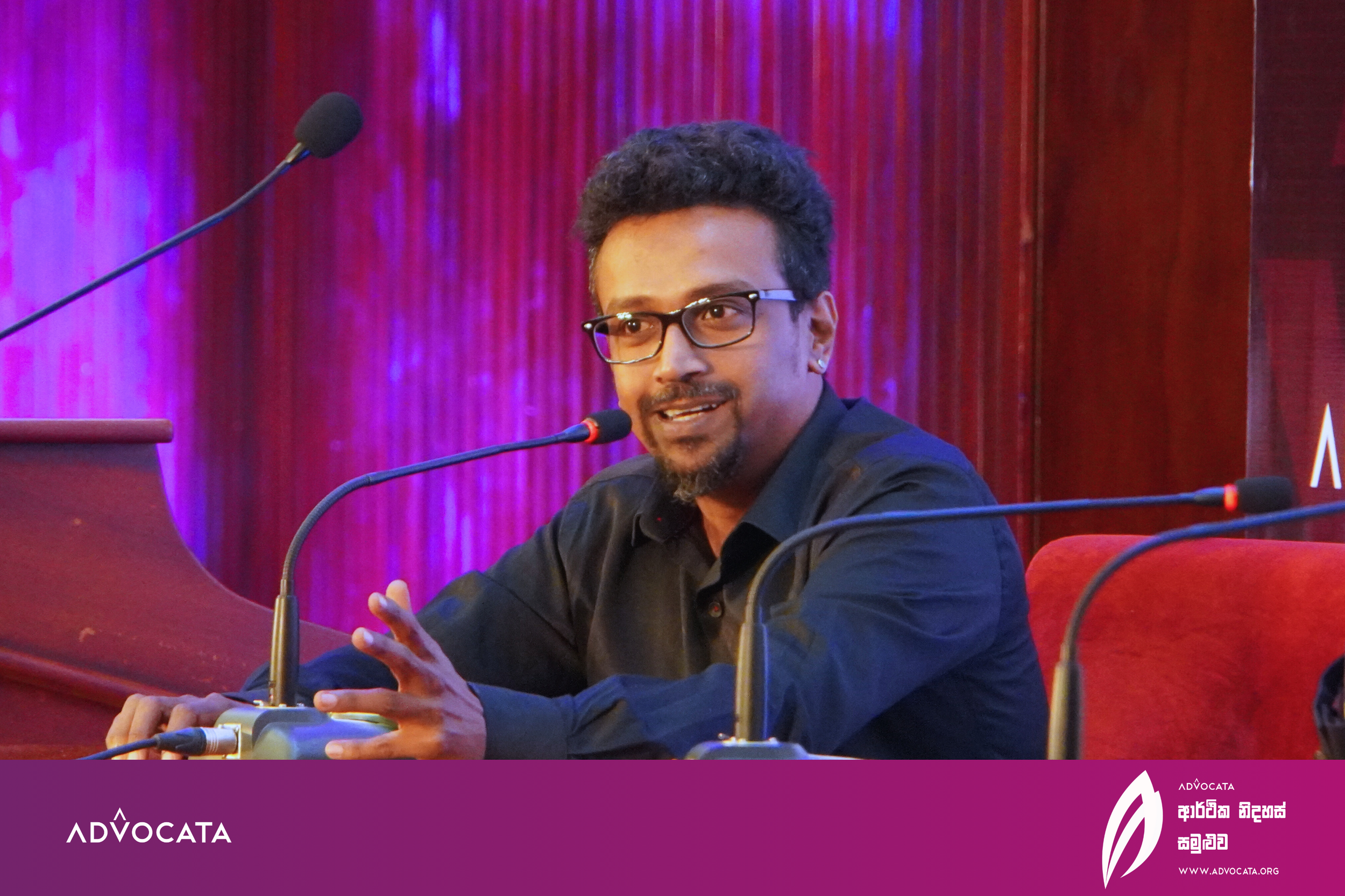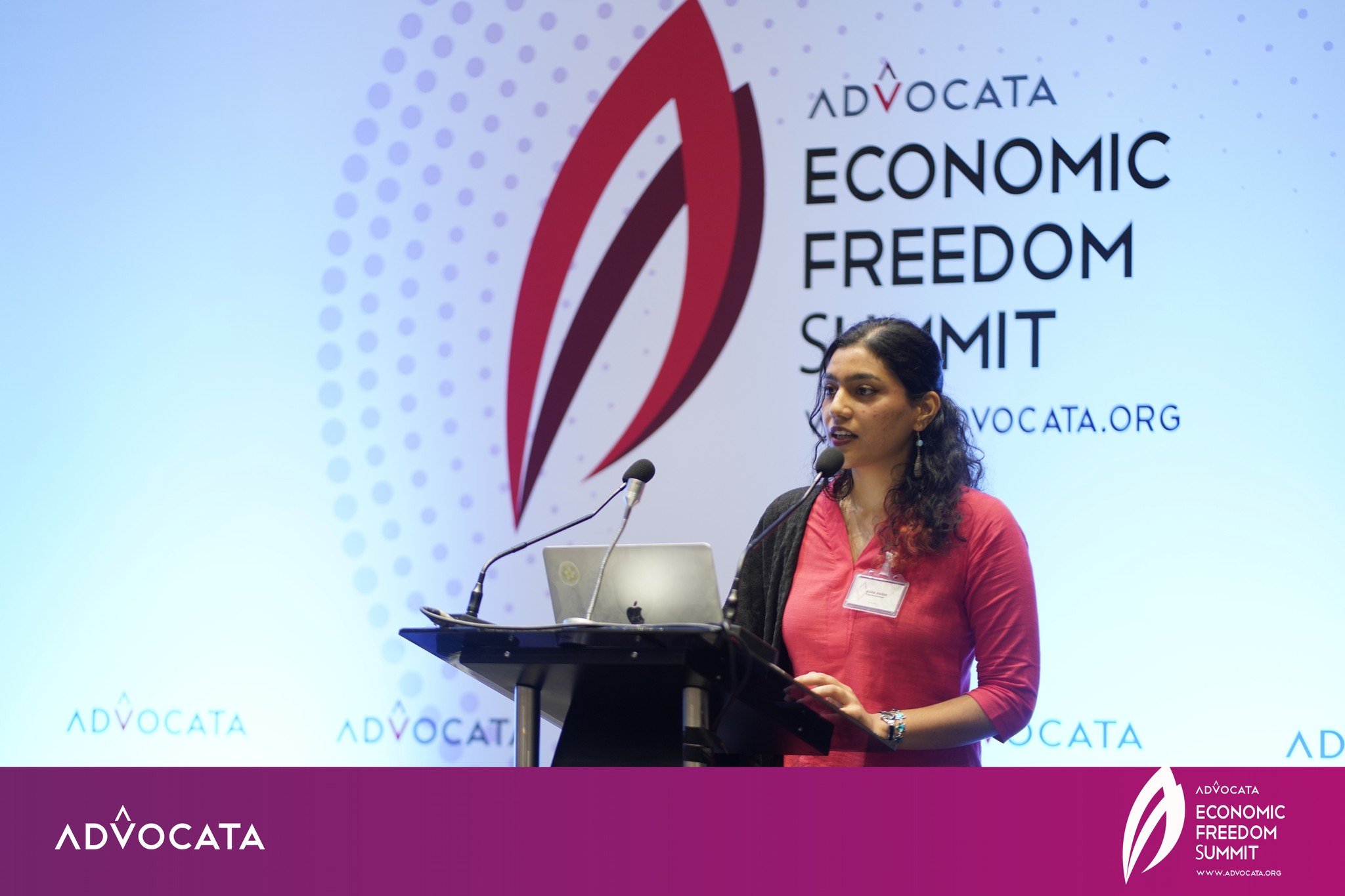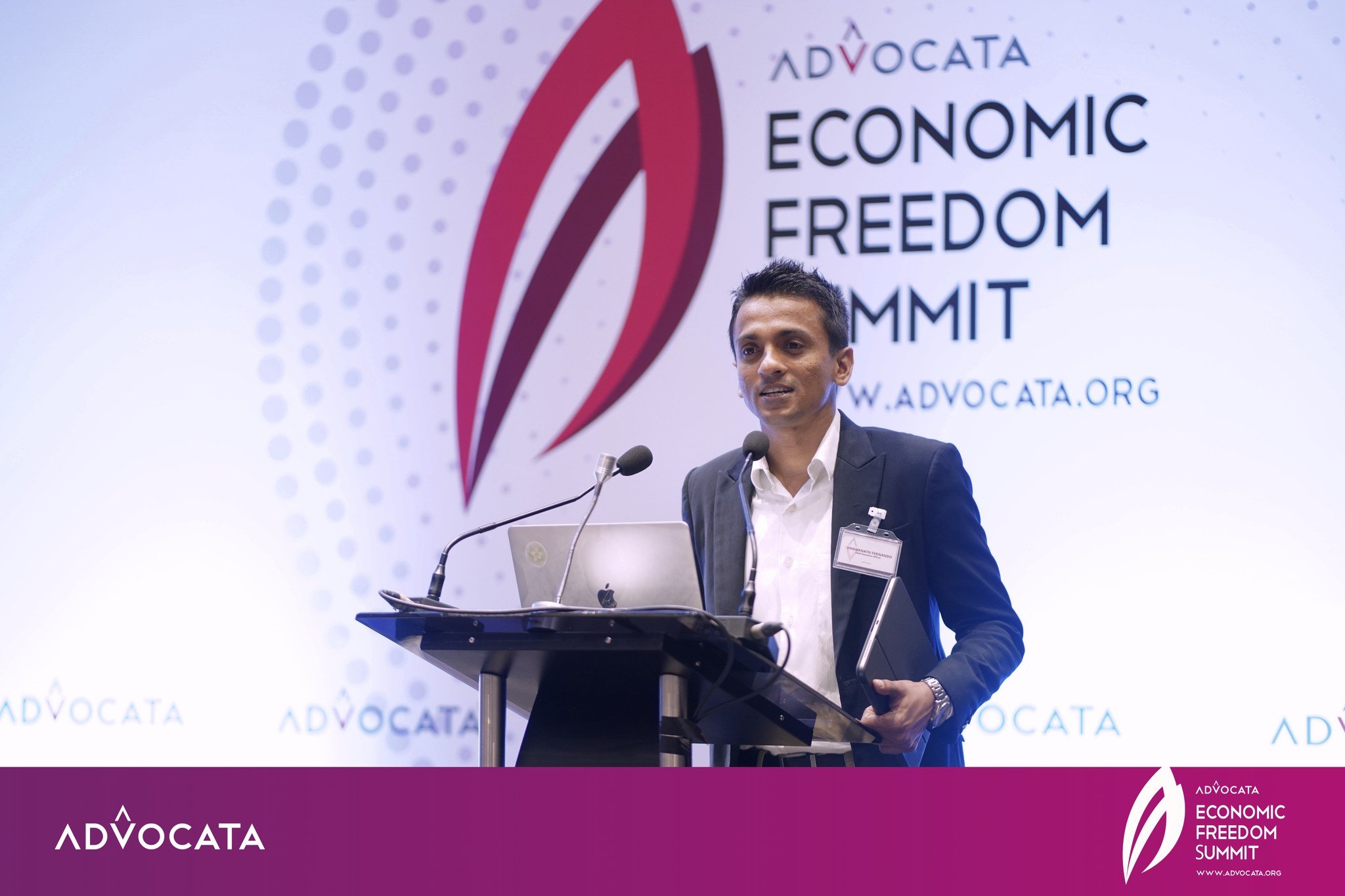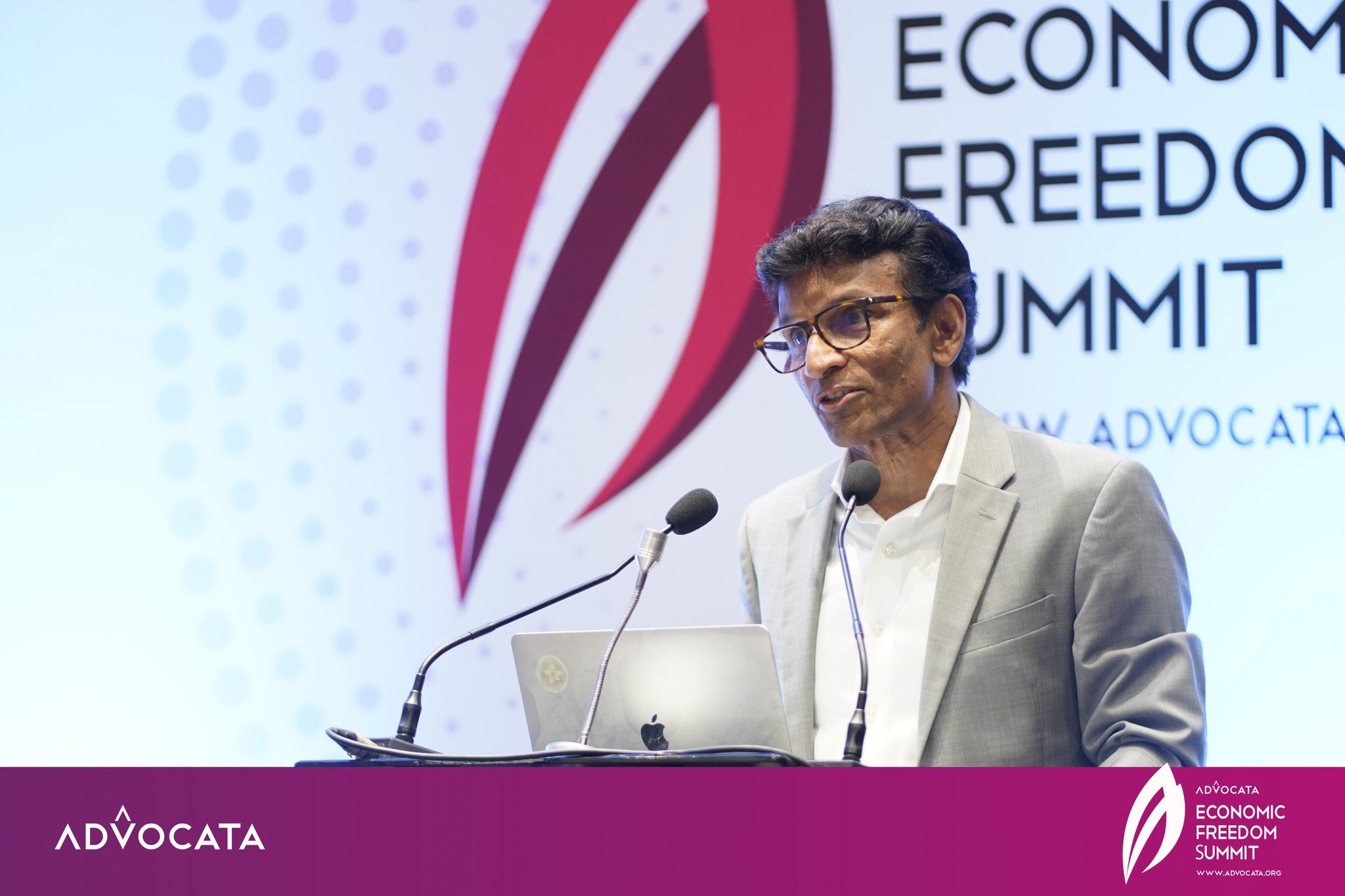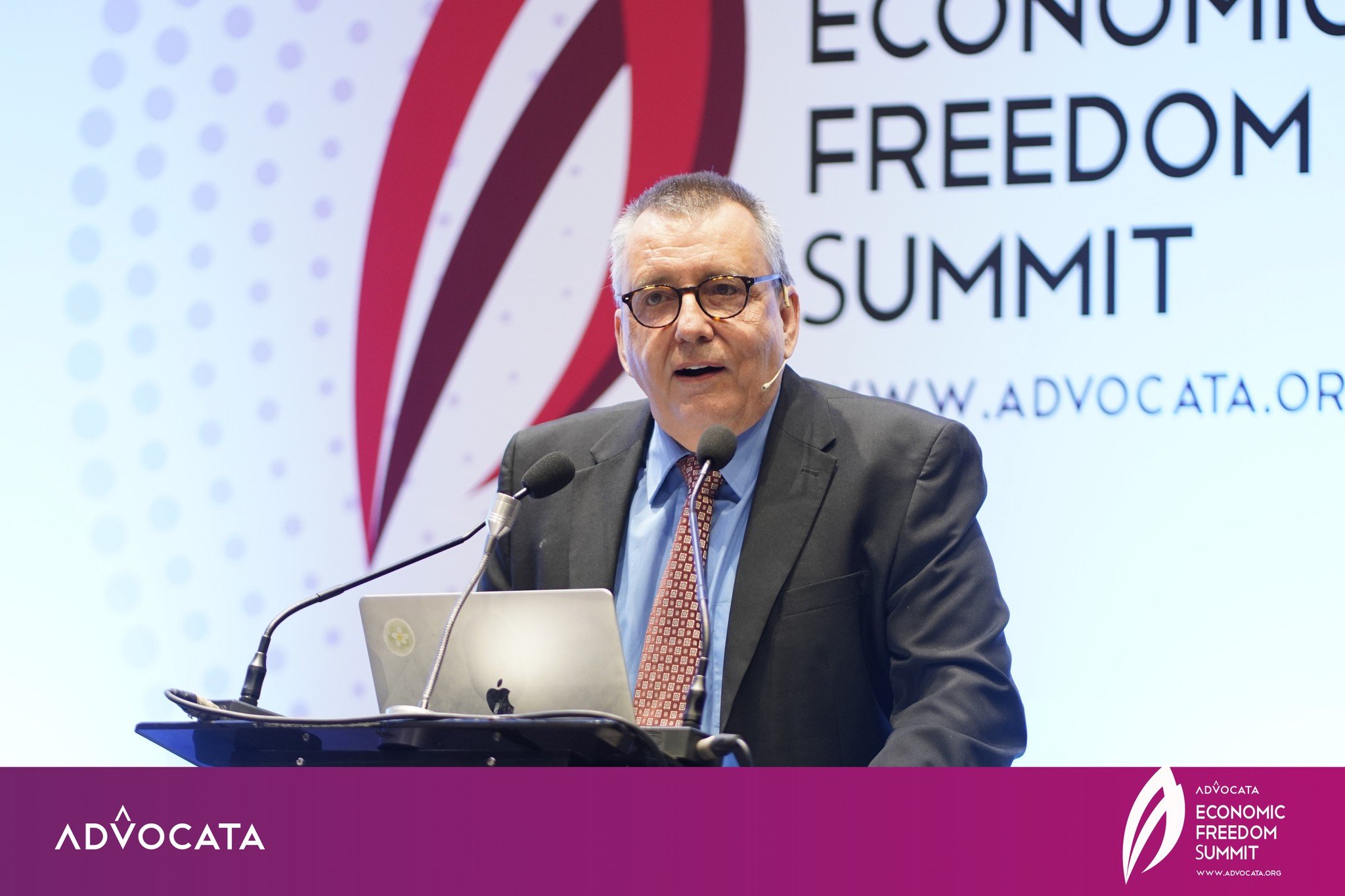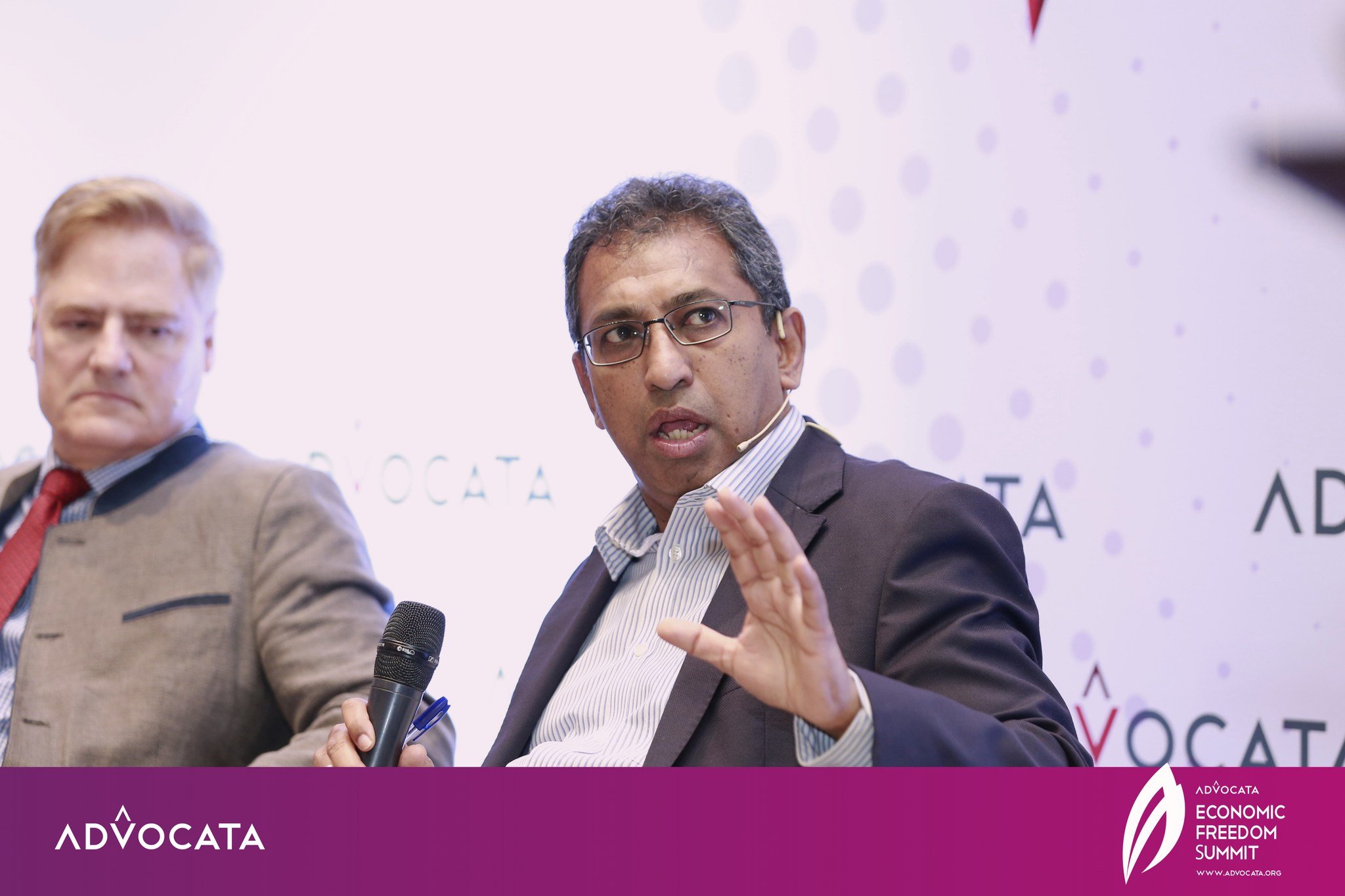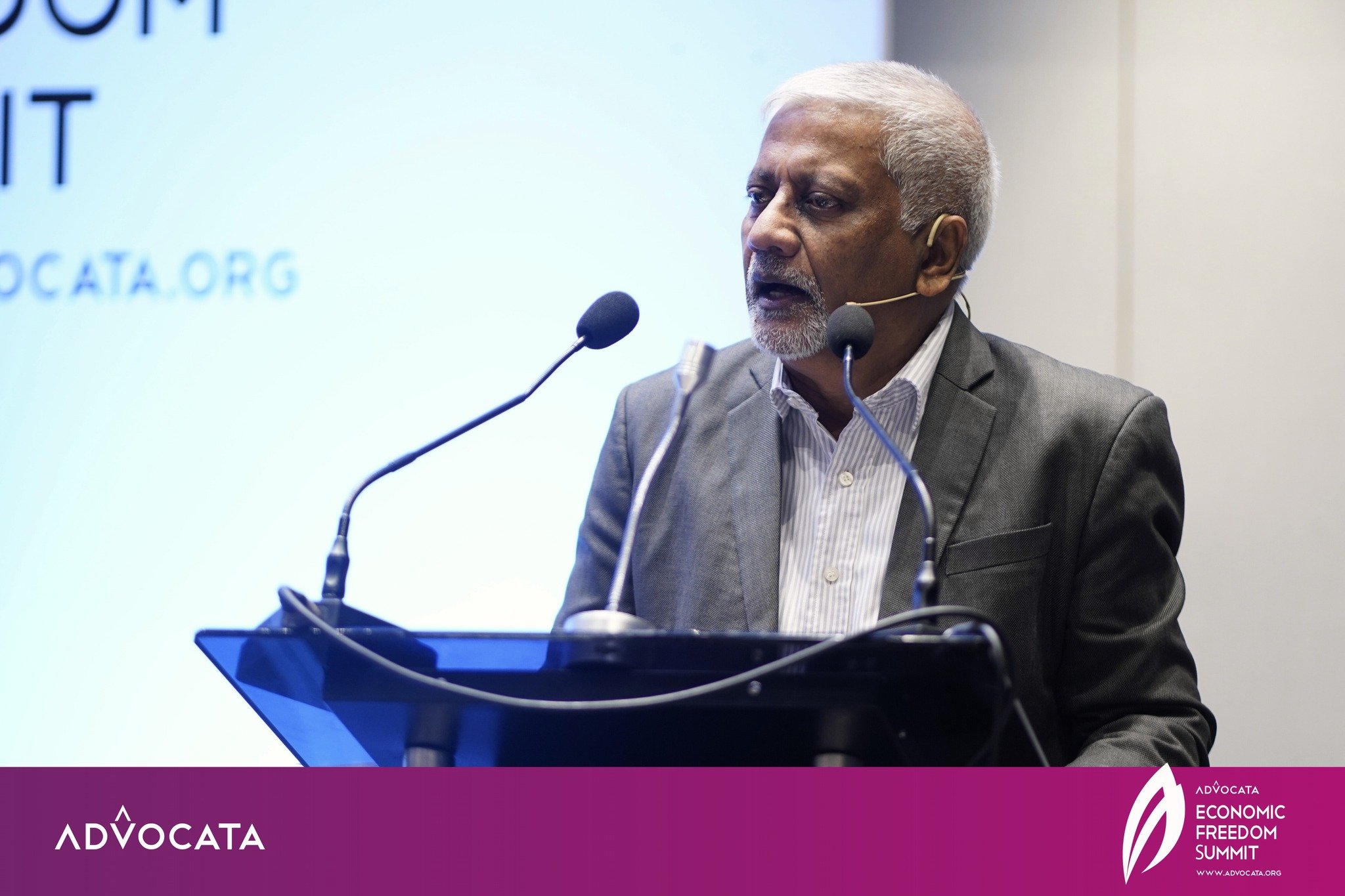Published on Colombo Telegraph
Good Morning ladies and gentleman, honourable State Minister Eran Wickramaratne, a lot of other familiar faces in the room, and of course the dynamic team at Advocata who have really taken this think tank from a start up to really making waves in the Sri Lankan think tank circuit.
It’s a real pleasure to be with you this morning and deliver a keynote at the Advocata and Fraser institute Economic Freedom Summit.
In my remarks to you today I’ll highlight some aspects of Economic freedom from my own perspective. They don’t neatly tie into the economic freedom index necessarily-my comments are a little broader- but you’ll realize through some of the running threads that they link up quite a bit with some of the elements of the Economic Freedom Index.
Much of these remarks will be from my own perspective, my own personal viewpoint. And some of they may find some resonance with you and try to provide food for thought for further discussion whether it’s for today’s proceedings, or for institutes like Advocata to take forward later on. It’s of course by no means an exhaustive discussion about economic freedom in Sri Lanka. I’m sure you’ll find many things you wish I had said, and you’ll find fault with me for that, but I’ll try and keep it to some perspectives for you to ponder on.
My keynote will be on three parts: part one is on policy orientations and the role of the state-might be an unusual point to start on given that this is a largely a free market discussion but I think it’s an important discussion to have on policy orientations and the role of the state, in part two I flag a few examples of contradictions or tensions in our economic debate where I think the lens of economic freedom needs to come in very strongly and very quickly that will enrich the debate here in Sri Lanka, and in part three my comments will be about how we can create and shape a popular narrative around economic freedom in our country.
Lets dive right into part one with a few thoughts on policy orientations and the role of the state. I must state upfront that I’m not a believer of absolutes, either blindly following that market forces can solve everything and we should just leave it to that, or that the state must overbearingly do everything because there are too many market failures. I think to be absolute in this debate will be missing the opportunity to make real change and really influence policy, but might be disconnected to the growing acknowledgement globally that there is a need for both the market and the state so long as we get the balance right. But hey, I guess that’s the big elephant in the room-getting that balance right- and we seem to have not gotten that balance right lately.
I recall a conversation that I had with the chief of UNIDO (United Nations International Development Organization) a year or so back. We were driving to the SLINTEC Nano tech facility in Homagama and we had a chance to chat. I asked him having seen so many policy orientations across the world with his work, what would his one piece of advice be to Sri Lanka. And he answered choose pragmatism over dogma. And he recalled, once again you might find it odd that in an economic freedom discussion we are referring to China- but this is just his remarks, he recalled Deng Xiaoping’s famous remarks — “It doesn’t matter whether the cat is black or white as long as it catches mice”.
So he went onto argue that for too long academics have been preoccupied with trying to classify development paradigms to neat, discrete categories. But given the complexity of our world today, the impatience of societies to prosper, and the pragmatism required of politicians, clinging on to particular ideologies may not help. Instead he argued whatever policies that can get the job done. In this case, gets the job done of expanding prosperity to more Sri Lankans is where the focus should be. So we need to be pragmatic about our policy mix but it certainly doesn’t mean that we shouldn’t focus on economic freedom — that should be our anchor.
But really what I’m saying is that we need to figure out what’s the best part to advocate for it in order to make the change. So focusing on economic policies that affect the prosperity of our people and the success of our firms would be a good way to go about it, and I think that it’s exactly what this summit tries to do today.
A useful way to anchor a policy debate on the role of the state is in my mind is about the government knowing when it should help create the way and knowing when it should entirely get out of the way.
So on the first part of that- on getting out of the way. You and I would both agree that we would love less government in our lives to deal with. An important part of this agenda is improving business regulations. The good news on this is that we are seeing a lot of attention on this and some progress. There are now eight ease of doing business task forces under the Ministry of development strategies and international trade with a roadmap of reforms for 8 areas on the World Bank’s ease of doing business index ranging from the speed of starting a business, the speed of obtaining construction permits, to the speed of settling commercial disputes.
So I think that’s definitely steady progress and I think the jury’s still out on how soon we will see results on but I certainly think that’s a lot of progress. But there are also regulatory issues beyond these often sighted ones. An important process that uncovered these business regulations beyond the ones we hear in these indices was the National Export strategy that we are now finalizing and the private sector has very much been a part of this process. During this, which took a sector by sector approach, there were several bottlenecks identified in particular sectors and across export sectors. For example in the IT sector (the honourable State minister has heard this at a recent meeting with us) for an IT company to bring in from overseas, a specialized person with a specialized skill set that’s not available here and can help take that company to the next level, the company has to make a request from the Department of Immigration for visas, but, that request has to then be forwarded to the relevant line ministry relevant to that company, so in this case, the Ministry of Digital infrastructure and telecommunication, who in turn refers that to a competent line institution, in this case, the ICT agency, who in turn takes a call on whether that company actually requires that particular person and that particular person’s skill set or not and then gives approval and then finally the visa is issued. This is an example of these kinds of regulation but thanks to the process we are having now and the support from the ministry of finance I believe, this is to be soon, streamlined.
Another example that I would like to cite. There’s a really cool manufacturer of wooden framed sunglasses. And he has to get a permit from the ministry of forestry for every batch of “Sunnies” that he exports. And that permit only lasts for a few weeks, and even if hundred sunglass frames are made from one tree and he has got the permit evidence that this has been sustainably forested and so on, he has to get a permit for every single shipment. And he wanted to go down the ecommerce route, and in ecommerce you don’t ship a hundred units in one go. Right, so you would order one from Canada, one from India and another person orders it from Belgium, so all of these would go in individual units so imagine having to go and get a permit for every single occasion.
But you can’t blame these institutions because for many years, they’ve been wired to think about protecting, so now the challenge is to rewire them to think about facilitating. There’s an economic problem here apart from just economic freedom and regulatory processes, because it makes the difference between him being able to capture value in Sri Lanka, retail value, versus capturing wholesale value which is what he has to do now. And these are just some examples at the national level.
We often talk about the Doing Business Index. But by its very design, the DBI only measures the business climate in a country’s largest commercial city – so in this case, Colombo. Having done a lot of work on SMEs I can tell you that the sub national business climate is very different, and I think we’ll all agree that these have important links back to economic freedom.
One thing I must confess here is that in the agenda of advocating where the state should get out of the way and reforming regulatory and procedural issues, I found that our private sector has also disappointed us.
At the Ceylon Chamber, whenever regulatory issues arise and companies tell us about it, we always say tell us what the specific regulation or act you are having trouble with, send in something in writing, help us make the case for it so that we can take it up quickly with the government. Often, the complaints come, but the follow up documents rarely ever do. Or we get very generic one liners like reform labour regulations or we get lengthy complained essays without anything specific. Now this makes it so much harder for us to advocate for regulatory changes and business and trade associations really know best what is pinching them. Folks are quick to complain but when it really comes to specifying what the issue is, either they don’t know or haven’t thought about it, or they just can’t be bothered putting pen to paper and would prefer to keep blaming the government for it. So many of these issues get unresolved because we just don’t find the bandwidth or interest even in government for them to take this on and dig in deeper. So here’s where I feel that we must do more.
Now the reason I bring this up is not to make one party look good and the other look bad, but if we are really keen about regulatory reforms we have got to be a part of it. And we have got to be proactive- it’s not going to happen with the click of a finger like magic.
Anyway this was all about the government getting out of the way. How about creating the way- does the government have a role there?
Now here is where I think it gets a bit contentious. Beyond the usual provision of public goods, health, education and so on I believe there is one area in which I think it’s a no brainer and that is supporting R&D and innovation. A lot of innovation activities globally, including in the countries that are the most economically free –so there isn’t mutual exclusivity there- are supported in some way by the government. Sri Lanka has a few examples of how good partnership with the state can catalyze innovation. The Sri Lankan Nano technology centre, for example, and the Science Park there, trace expert city. One of my favourite examples is the Gamma irradiation facility where private rubber gloves manufacturers can use this facility as a shared technology resource to make their gloves into surgical rubber gloves, which requires it go through this gamma radiation. And they’re able to capture more lucrative export markets.
I believe that the government will be launching soon an innovation and entrepreneurship initiative that provides exporters with support to develop new products, test and prototype, upgrade their technology and also an additional programme to support very early stage start ups. Now these are all examples of where the state can create the way whilst it gets out of the way in other areas.
Moving on to part two, I will highlight a few contradictions or tensions that I see, just a couple of examples in our debate on economic issues. Things that bug me and it might be bugging you too.
The first relates to trade and investment policies. We often here about the desire to promote exports as an important strategy of attaining faster growth and achieving greater prosperity. Yet we often hear about the desire to curb imports- exports good, imports bad. This really links back to our trade policy and the kind of protectionism we have.
Whether it’s in the public sector or in the private sector, I’ve heard few people explore the virtues of imports. Their idea of economic freedom is that we must export as much as we can but prevent imports as much as we can too. This thinking was particularly relevant under the economic management of the previous administration, but remnants of it still remain in both the public and private sector today. We must recognize that exports and imports are two sides of the same coin and it’s especially important considering contemporary trade patterns which are dominated by what economists call global production networks, where importing parts, components and raw materials at sensible prices are integral for a firm’s ability to be successful as exporters. Curbing imports while trying to boost exports is somewhat oxymoronic.
Another aspect is FDI. I’ve received many a letter from our members at the Chamber who want me to advocate for tighter controls on foreign investments, from companies that are pretty successful in overseas markets. They have benefited from open, investor friendly policies overseas, but are adamant that Sri Lanka should curb the freedoms of foreign investors here at home.
The second aspect in my contradictions and tensions theme relates to issues in the labour market. At meetings this week on finalizing the national export strategy, several industries complained of a shortage of workers. Not only shortage of skills necessarily, but a shortage of absolute numbers, particularly in manufacturing. They are just unable to attract young people into manufacturing.
All of them seem to have this one fantastic solution for it, and are adamant that it is the solution. “We must stop them all from becoming three wheel drivers”- and I’m sure you’ve heard these similar sentiments. The issue is that young people’s aspirations are changing; their mindsets and attitudes towards certain occupations are changing. Many are placing a premium on flexibility than a steady job; many are discounting future earnings and are taking an unorthodox approach.
Many are also having, what economists call a high reservation wage, where they would rather work as a three wheeler driver at that level of income than going for a manufacturing job. The challenge is that whilst this is a problem, too many folks I know think that the solution is to ban them from becoming three wheel drivers, or worse, curb the three wheel population as a whole.
I think this is a classic economic freedom issue that is being highlighted here.
I’ll be the first person to admit that there are many three wheel drivers who drive like crazy people in the city, and I’m sure you’ve had your fair share of close shaves due to their bad driving but the problem with making rather binary policy decisions is that we fail to realize the economic freedom element in this.
During the course of my work, I visited a number of tea estates and rural areas, and the amount of utility they gain from having a three wheeler is immense. For inhabitants of rural estates, the three wheeler is their last mile connectivity. It is their de facto public transport. It is that three wheeler that gets a mother from the estate line room to the estate clinic in time. That gets a child to a tuition class. That enables a grandmother to bring her shopping from the weekly pola. By introducing the high LTV (loan to value) ratios on three wheeler purchases, to stop young people from going into it, or to reduce the number of three-wheelers in the city, I think we’ve just vilified the three-wheeler as a whole and the reason I spent a little bit of time on this seemingly small example is because I thought it captures the case in point being the need to reshape the debate around economic freedom.
I’ll give you another example before moving on to the next part. There was a meeting once again hosted by the ministry of finance a couple of weeks ago with tech companies to discuss what needs to be done to boost the tech sector. Many folks, like I said, discussed about the need to reform payment regulations, making it easier to attract global talent and during the conversation, a point about Sri Lanka’s limited skill pool, a couple of individuals suggested that we must find a way to limit the migration of Sri Lankan IT graduates- there is too much brain drain.
I think a lot of us were rather alarmed to hear this from the industry. Now intuitively at first glance, it may sound sensible at first glance. Sri Lanka’s IT sector is growing, has great potential, IT sector is constrained by the limited skill pool, a lot of IT people getting educated here and leaving, so this must be stopped. But I think the economic freedom implications of this are rather serious.
These areas I think are areas of tensions or contradictions in economic thinking where I think an economic freedom lens needs to come in quite strongly and Advocata can help to shape that debate.
Next to part three, on creating a popular narrative around economic freedom. And for this I argue that we should take budgets and government spending as our starting point. I share with you two perspectives on that. The first is how Sri Lanka, rather ironically, taxes enterprises to support enterprises. Confused? Let me elaborate.
Sri Lanka has dozens of institutions from national level to local level that have been set up to either promote enterprise development, or industrial development. They are present in every district, in every province. They are well staffed at HQ, and on the ground. But many of these are not working the way they should anymore. They have outsized budgets compared to the services they deliver and they have rarely been questioned on the efficacy of their programmes. But they run on the taxes of entrepreneurs and workers. Imagine this, we are taxing entrepreneurs who are already operating in a rather unsupportive business climate at the local level to then fund state institutions across the country that are supposedly supporting enterprise development but really aren’t very useful or effective. I can understand the tax money going to fund roads, bridges, police, schools and hospitals-no entrepreneur is going to argue with that- but, to take tax money to fund these institutions to me seems so wrong. And to add insult to injury, it is these institutions that have been used to provide unemployed university graduates with jobs as so called development officers.
So it’s a double whammy for a tax paying entrepreneur; not only did your tax money pay for someone’s undergraduate education, but it’s also going to pay the wages of that undergraduate to work at these institutions that have been set up to support enterprise development.
You know, I’m really surprised there hasn’t been a revolt by provincial enterprises. Now the radical solution would be to shut them all down and shove off part of the tax burden from enterprises, but I doubt this will happen in the short term. So I think we should at least agitate to get more value for money. I had a very interesting discussion with UK’s former head of the Small Business agency, David Irwin. He came from the private sector and this was his first public sector job. And so he was determined to get real value from his state agency that was meant to support small businesses. And one of the first things he did was to get his officers to go out and meet enterprises to understand their needs. This is something our institutions can do too, in the short term. Get all of these officers to go out, be foot soldiers, meet enterprises, understand what they need, resolve their issues or connect them to someone who can.
So this is just one example of why we need a strong and popular narrative around the size of government, value for money for public spending, and overall economic freedom.
The second perspective relating to this is about SOE losses. I need to say upfront of how proud I am to see Advocata take this issue head on and in their first public document last year, it was totally dedicated to the issue of state owned enterprises and kick started debate on SOEs that had been lost for many years. Taxation, SOEs, budgets have never really been sexy topics for anyone but I think we need to make them sexy.
We need to help people relate to these issues, help them understand how they matter to people’s lives. Few years ago I remember publishing a short blog post about SOEs where I made a small attempt to make them relatable. I put forward about nine alarming facts about SOE losses-this was around 2014- the two that got the most attention were relating to the two airlines at the time (2014). One- the projected losses of the two state owned airlines in the next three years will be ten times what Sri Lanka spends each year on education related welfare, like textbooks, uniforms and school meals. This was from the ministry of finance report back in 2014.
The second one that animated people – The losses of Mihin Lanka Pvt Ltd in 2013 is equal to the entire amount the government spent that year on crucial welfare programmes like Triposha, poshana malla and fresh milk for preschool children. Mihin had just three aircrafts, and these programmes served over one million people. Suddenly you take this from an economic reform debate, or an SOE reform debate, a public finance debate, a fiscal prudence debate into a debate around value for money and spending priorities for people.
I think that if we are to succeed in holding the public sector accountable the money collected from current and future taxpayers- we need to get better at creating a more interesting narrative that gets more people animated. One of my favourite approaches is how the New Delhi based, Centre for Budget Governance and Accountability (a private think tank) uses cartoons published in a leading Hindi Weekly newspaper highlighting budget issues, highlighting contradictions, highlighting irony, in a crafty and attractive way and its really gained ground.
Maybe we need to go a bit further; we need a few gimmicks and public spectacles Green Peace style. Here are a few radical ideas I would like put to Advocata to think about pursuing. Ahead of the budget next month, take a Mercedes Benz S class to the entrance of the University of Colombo, park it there and advertise that by cutting one luxury car from the cabinet of ministers we can fund a state of the art computer lab with 150 computers. For vesak next year, have a massive butter cake dansala in the centre of Kurunegala and as you begin to cut up this massive butter cake, for distribution tell people about your research on food taxes and how much of their cake goes on tax. Stand outside the Sri Lankan airlines office with bags of Triposha and flag how many more school meals estate children could have been provided- and by the way, child malnutrition in estates is the highest in the country.
As the final bit to this part I would like to put forward two key areas for further thought- these both relate to part three’s main theme on how do we create a popular narrative among people and also among policy makers. The first really is about aligning ideas of economic freedom to other ideas of economic thought that maybe more familiar to policy makers here and abroad.
And in this, I submit that the conceptual framework of inclusive growth is probably the most compelling piece of mainstream economic thinking that matches economic freedom. The problem so far has been that we tend to conflate the idea of inclusive growth with redistribution, or just welfare. Actually, inclusive growth is more about economic freedom than we realize. Inclusive growth is not just about more people benefiting from growth, but it’s equally about more people being part of creating that growth, whilst redistribution simply means growth happens in a few sectors, in a few regions in the country, you take those surpluses and then you provide welfare. That model is what we followed during the colonial plantation economy, but inclusive growth is about enabling more sectors, more people, more regions of the country to play an active and productive role in generating that growth- not just in Colombo, but everywhere. And I think this is where the entrepreneurship climate comes in, this is where opportunity and freedom comes in, this is where fair play and better government performance comes in. Inclusive growth is really about creating a climate where more people in society, where more entrepreneurs have the opportunity to thrive. And not be held back by bad procedures, and an unfair, or uneven playing field or a lack of investment in people’s health and education. So that’s one aspect of economic freedom to consider- linking economic freedom to the inclusive growth discussion. The other final aspect is how do we measure the outcomes of economic freedom in a way that matters to people.
I think Fred highlighted some metrics, particularly around the usual GDP per capita income measures, and I think the most important contribution of economic freedom Index, is that it gives us a good sense of the input factors – what are the pillars or elements that tell us the degree of economic freedom in the country. We now need to look at how we can capture something beyond that; how can we capture the degree of economic freedom felt by economic agents in an economy. I think there’s more work to be done on that, especially from a Sri Lankan perspective. If we are to create a popular narrative around economic freedom, institutions like Advocata and others would need to work on how to relate economic freedom to policy outcomes that governments seek, how to relate it to the lives of citizens and entrepreneurs, and to be able to answer a key question- what does economic freedom mean to you.
Thank you very much.
